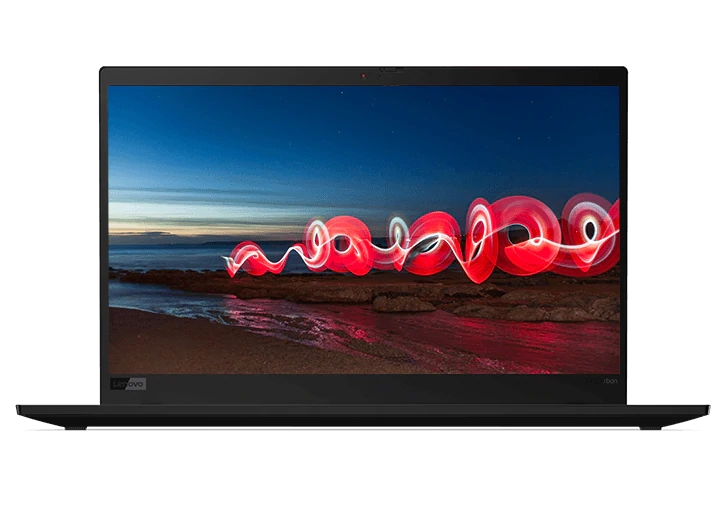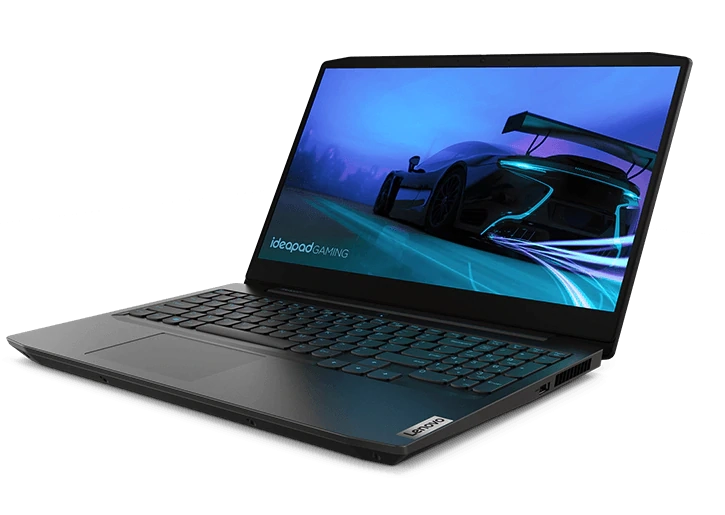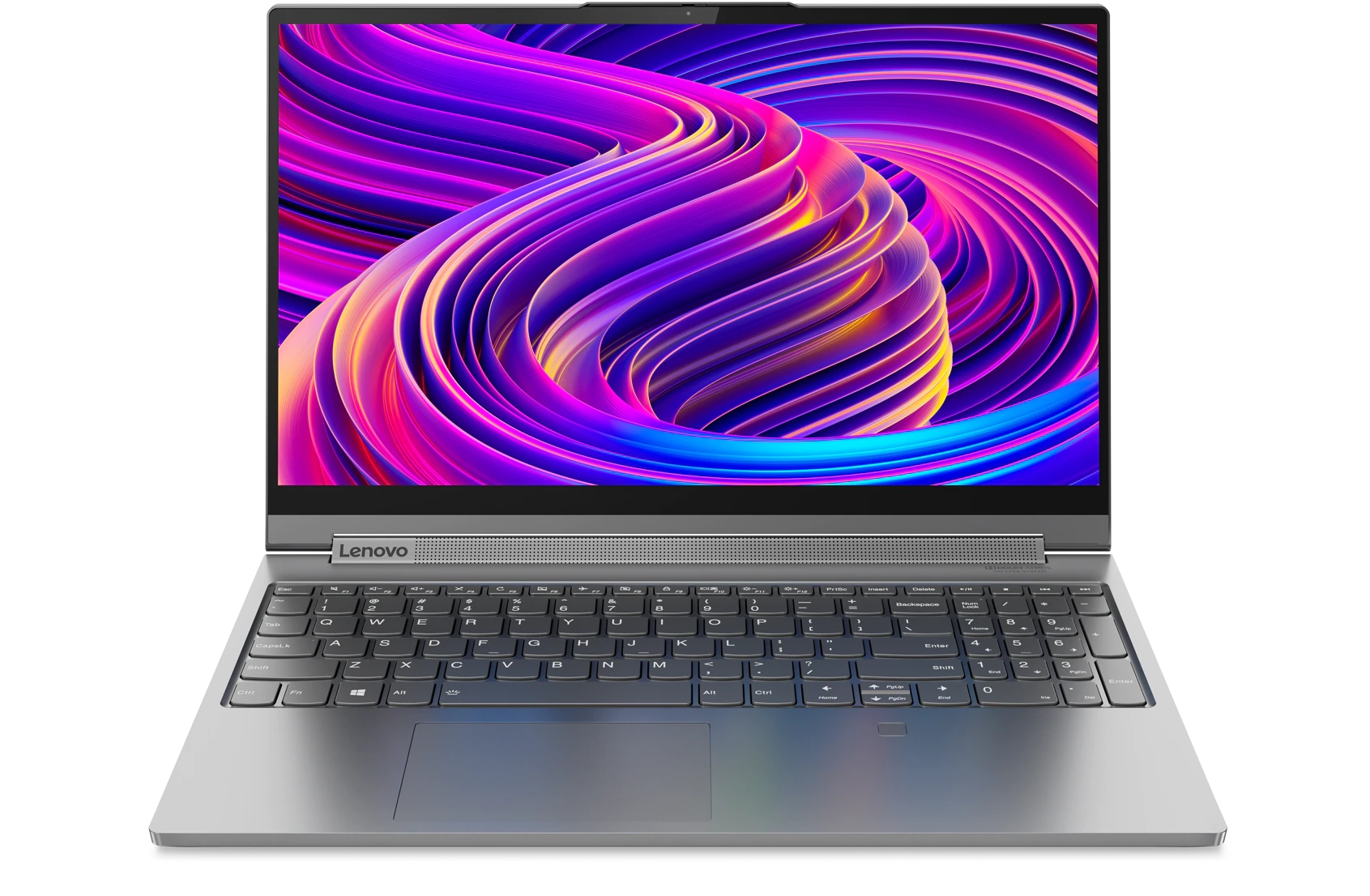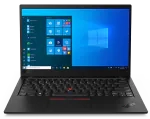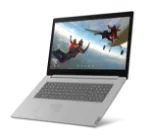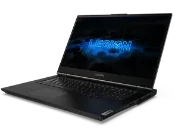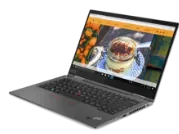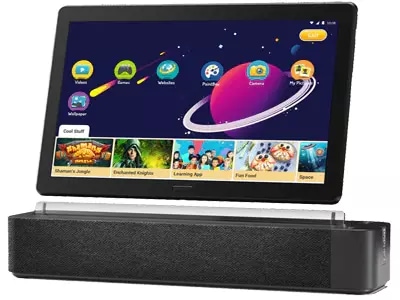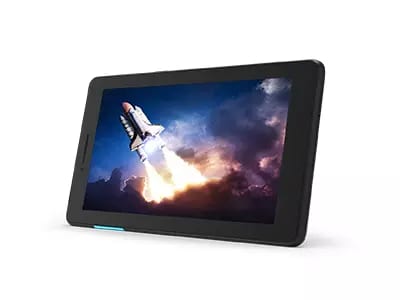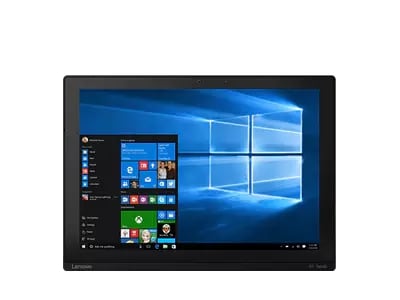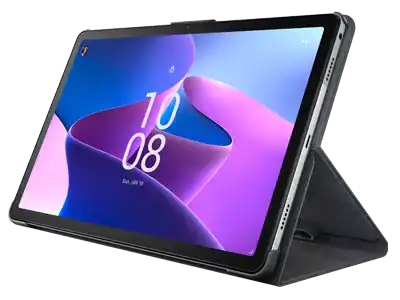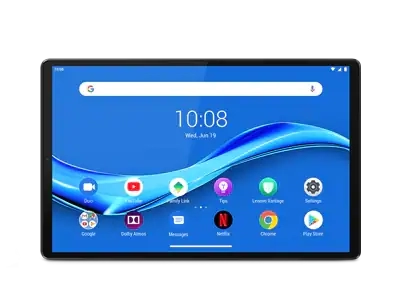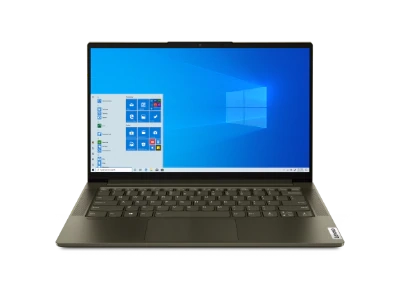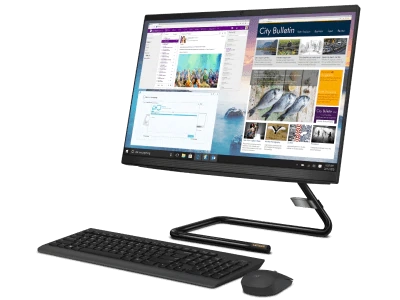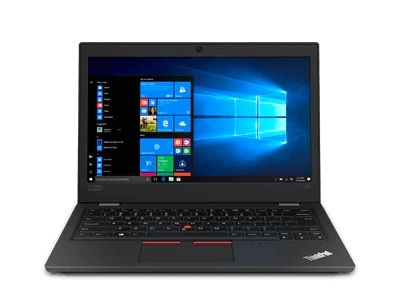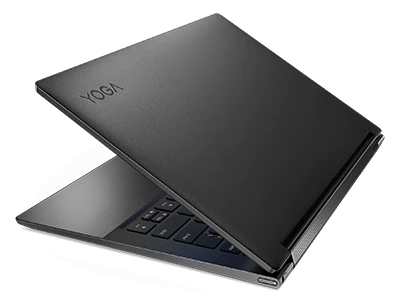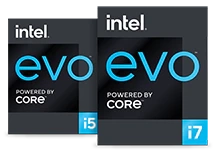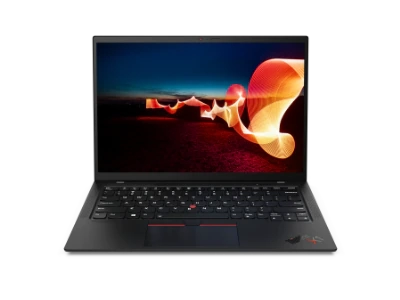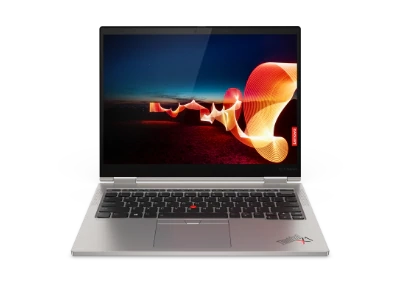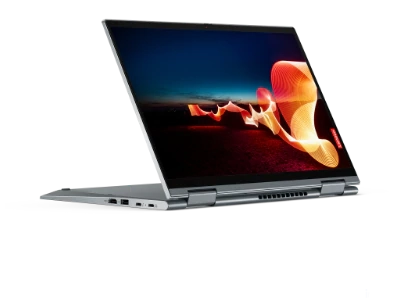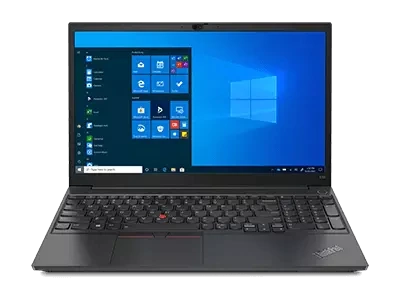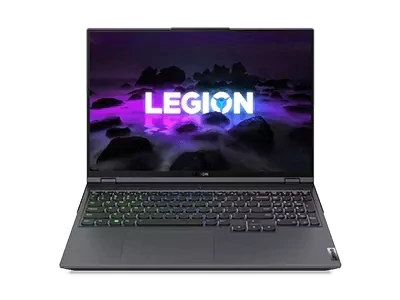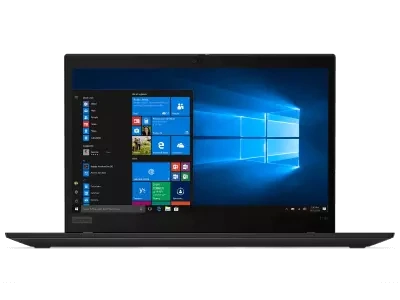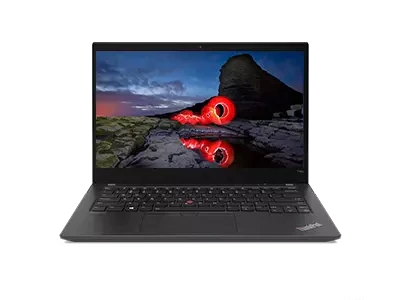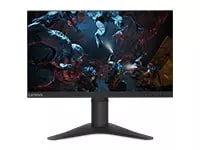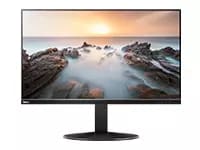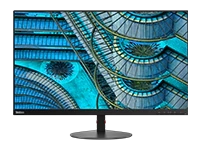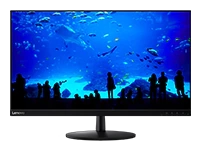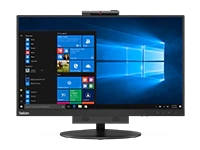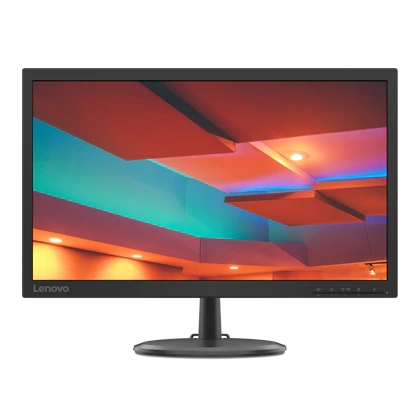SSD vs HDD: Which is the best for my PC?
Today’s PC shoppers face a choice when it comes to data storage: should you buy a less expensive system with a traditional spinning hard drive (often called an HDD) or spend more to get a faster, all-electronic solid-state drive or SSD? For most buyers, the answer depends on the kinds of files they store, their budget, and their need for speed in data-intensive tasks.
Lenovo’s award-winning laptops and desktops are available in multiple storage configurations. There are even systems equipped with both HDDs and SSDs to exploit the best features of both technologies. But what’s the advantage of an SSD over an HHD? Is an HDD ever better than an SSD? And do you really benefit with a dual-storage system?
Advantages of a solid-state drive (SSD)
A solid-state drive or SSD is an electronic storage option that eliminates the moving parts that make traditional, magnetic hard drives susceptible to damage and mechanical failure. It uses low-latency flash memory like that found in cameras and smartphones, with data stored on the SSD chip in contiguous sections that get used (or erased and re-used) as needed.
There are several ways an SSD is considered superior to an HDD:
- SSD benefit: Faster data access – SSDs call up data more rapidly, so they accelerate boot-up times and app loading.
- SSD benefit: More durable – With no moving parts, an SSD is less susceptible to damage from drops and falls.
- SSD benefit: Lighter weight – Compared to an HDD, an SSD weighs far less (great for laptops and other portables).
- SSD benefit: Quieter, cooler – SSDs make less noise and run cooler than HDDs with spinning disks and mechanical arms.
- SSD benefit: Less data fragmentation – Data on SSDs is stored in larger, tighter memory sections than on HDDs.
On the other hand, an SSD will cost two to three times more than an HDD. It will usually have less capacity, and it could have a shorter lifespan (SSDs are ideal for frequent storage and retrieval of lots of small data files (such as when booting up), but doing the same with large files is more problematic because the big swaths of semiconductor material needed can only be used/erased so many times). It’s also accepted that when an SSD fails, it can be more difficult to rescue its data than with an HDD.
Advantages of a hard disk drive (HDD)
A traditional hard disk drive or HDD stores data on one or more metal disks coated with magnetic material. The disks mechanically rotate until specific segments of data (or available empty spaces) align with a magnetic recording head that can read and write discrete bits of data on the allotted segments, which can be non-contiguous to maximize storage volume. The movement of the disks creates the distinctive clicking sounds associated with HDDs and is why they are sometimes called “spinning” disks or drives.
Here’s why some users consider HDDs to be superior to SSDs:
- HDD benefit: Larger capacities – It’s easy to find multi-disk HDDs of 2 TB or larger, but the complex layout of the electrical circuits of an SSD chip has so far kept them far smaller (128 GB or 256 GB are common).
- HDD benefit: Lower prices – Flash memory is still comparatively expensive. On a per-GB basis, an HDD will cost half or a third as much as a similarly sized SSD.
- HDD benefit: Longer life – HDD technology is tried-and-true and usually works reliably unless there’s physical damage to the unit. And since it uses more of a physical process than an electrical one, rescuing data from an HDD can be easier than from an SSD.
On the downside, an HDD will save and retrieve data more slowly than a flash memory based SSD. It’ll also be heavier, make more noise, generate more heat, and draw more battery power. As such, while HDDs are still a popular component in laptops, SSDs are gaining market-share in that category.
SSD vs. HDD: Does an HDD RPM rate matter?
If you’re looking at a PC with a traditional HDD, pay attention to the specs for RPM or revolutions per minute, a measure of how rapidly the media disks spin within the unit. The two most common RPM rates in today’s hard disk drives are 5,400 RPM and 7,200 RPM. [There are HDDs that work at much faster RPMs, but they’re typically not used in consumer PCs.]
Will a 7,200 RPM HDD work faster than a 5,400 RPM one? Yes. So, buying a 7,200 RPM HDD is one way to improve your new PC’s performance without paying the extra cost of a solid-state drive. [Another option is Intel’s Optane memory acceleration technology.] However, experts disagree on whether the faster RPM rate results in a proportionate increase in data access speed. Some say the real difference is smaller, with 5,400 RPM drives working at 100 MB/s and 7,200 RPM drives working at 120 MB/s.
Should I buy a dual-storage system (HDD and SSD)?
PC manufacturers also produce computers that use both HDD and SSD technology. These dual-storage systems seek to exploit the best aspects of each kind of storage: an SSD for data that needs to be accessed rapidly and repeatedly, and an HDD for material better suited to long-term storage (and less frequent access).
What are the advantages of a dual-storage, HDD/SSD system? By putting your OS on the SSD, initial boot-up times will be much faster, as the system can access the critical start-up files more rapidly (almost immediately) than with an HDD. Depending on the size of your SSD, you can also put your most commonly used software programs and personal files on the SSD. Meanwhile, you can use the much larger HDD to store bigger files such as photos, videos, and games that aren’t accessed as often.
Ready to make your selection? Lenovo makes it easy to find the SSD or HDD models you desire. Simply call up our laptops or desktops page and use the “Hard Drive” drop-down to filter the results for the specific storage option you’ve chosen.
Solid state drive (SSD) vs. hard disk drive (HDD): Comprehensive Comparison
Solid state drives (SSDs) and hard disc drives (HDDs) are the two main types of computer storage memory. While HDDs have been around since the advent of the personal computer (PC), SDDs are a relatively new invention, offering several benefits. Here’s a table comparing SDDs and HDDs.
| Feature | SSD | HDD |
| Storage Capacity | Limited - Up to 4TB | High - Up to 10TB |
| Speed | Fast - Up to 550 MB/s | Slow - Up to 200 MB/s |
| Durability | High | Low |
| Cost | Expensive | Inexpensive |
| Noise | Silent | Noisy |
| Power Consumption | Low | High |
| Reliability | High | Low |
What is SSD storage?
SSDs are computer storage devices similar to a bigger, more complex version of a USB memory stick. The purpose of an SSD is to store data securely and permanently, even when the device is powered off.
Unlike traditional HDDs, which store information on spinning magnetic platters and use a mechanical arm to read and write data, SSDs have no moving parts.
Instead, they use a type of memory called "flash memory" to store data. Data is organized in a system of electronic circuits and there are no moving parts.
The advantage of SSDs over HDDs is mainly speed. Because SSDs don't have to physically move a read-write head to different parts of a disk (like HDDs), they can retrieve or write data much faster. They're also more robust because of the absence of moving parts, which makes them less susceptible to damage from shocks or drops.
What is HDD storage?
HDD storage is a data storage device used for storing and retrieving digital information using rapidly rotating disks (platters) coated with magnetic material. These disks have magnetic heads arranged on a moving actuator arm, which read and write data to the surface of the disks.
HDDs were the dominant type of storage since the inception of personal computers, but SSDs have become more popular in recent years due to their superior speed and performance.
However, HDDs still remain in use today because they are typically cheaper and available in larger capacities than SSDs. With that said, SSDs are cheaper than ever and can now replace HDDs in many scenarios.
External HDD vs external SSD
You can use both external HDDs and SSDs as portable storage devices to backup data, extend your computer's storage, or transfer files between different devices. However, there are some key differences between them:
- Speed: SSDs are significantly faster than HDDs regarding read and write speeds. This accelerates file transfers, backups, and data retrieval. When moving files, HDDs obtain speeds of 30 to 150 MB per second (MB/s), while standard SSDs achieve speeds of 500 MB/s.
- Durability: SSDs, having no moving parts, are more durable than HDDs. They resist physical shock, making them more robust during transportation.
- Price: HDDs are generally cheaper than SSDs, especially at larger storage capacities.
SSD vs HDD lifespan
Both SSDs and HDDs can last for many years under normal usage conditions. Specific lifespans vary based on many factors, including the quality of the drive, the amount of data written to the drive, and environmental conditions such as heat and humidity. Of course, any knocks, bumps or other impacts will also affect the drive's lifespan.
The lifespan of an SSD is usually defined by the number of write cycles it can handle, which is affected by the endurance of the flash memory. Conversely, HDD lifespans are typically limited by how long the moving parts inside the drive last.
Modern SSDs often have a longer lifespan than HDDs, particularly in laptops where they endure knocks, vibration, and other impacts.
SSD vs HDD for gaming
When choosing a SSD vs HDD, choosing an SSD can make a noticeable difference to gaming.
The immediate benefit of using an SSD for gaming is faster load times – SSDs can access data much quicker than HDDs, so games installed on an SSD typically load faster. This speed can be a significant advantage when loading large, complex game worlds.
Moreover, games that need to frequently load new areas or items while you're playing can also benefit from an SSD. These operations happen faster on an SSD, which means less stuttering or freezing in games that constantly fetch data.
SSD or HDD: Choosing the best storage solution for your computing requirements
When it comes to SSD vs HDD, the decision depends on speed, durability, storage capacity, and cost.
If you use heavy software applications, play high-end games, or simply want your computer to be as fast as possible, an SSD is worth it. When it comes to SSD vs HDD speed – there’s no competition. An SSD can make your computer feel more responsive and your applications load faster.
On the other hand, if you need a lot of storage space but don't want to break the bank, an HDD could be the way to go. They offer larger amounts of storage at lower prices, making them a cost-effective choice for storing large amounts of data, such as extensive media libraries.
Frequently asked questions
Which lasts longer: SSD or HDD?
Both SSDs and HDDs can last for many years, but the lifespan of SSDs surpasses HDDs in some cases. It's also worth noting that an SSD hard drive has no moving parts, making them more durable and resistant to physical damage.
SSD vs HDD: What's the difference, and which should you buy?
SSDs and HDDs are both storage devices, but there are significant differences between the two:
- Speed: SSD drives are much faster than HDDs regarding data transfer speeds. This can make your computer feel significantly faster, with shorter boot times, quicker file transfers, and faster application load times.
- Durability: SSDs are more durable than HDDs because they have no moving parts. This makes them a better choice for laptops and other mobile devices, which are more likely to be subjected to physical shock.
- Noise and heat: SSDs are silent and generate less heat than HDDs, which have mechanical parts that create noise and heat when operating.
- Price: Per gigabyte, SSDs are more expensive than HDDs. So an HDD is more cost-effective if a large amount of storage is required. However, costs are coming down.
As for which one you should buy, it depends on your individual needs. If you need a lot of storage and have a tight budget, an HDD might be the best choice.
However, an SSD could be the better option if you want a faster, more durable drive and are willing to pay more. For laptops, SSDs are lighter, faster, and more durable.
For many users, a combination of both – using an SSD for the operating system and applications and an HDD for mass data storage – offers a balance between speed, performance, and cost.


Limits: Orders limited to 5 computers per customer. For larger quantities, go to the “Where to Buy” section of the website for details of resellers and retailers of Lenovo products
Offerings and Availability: All offers subject to availability. Offers, prices, specifications and availability may change without notice. Product offerings and specifications advertised on this website may be changed at any time and without notice. Models pictured are for illustration purposes only. Lenovo is not responsible for photographic or typographic errors..
PCs shown here are shipped with an operating system.
Prices: Web prices advertised include VAT. Prices and offers in the cart are subject to change until the order is submitted. *Pricing - savings referenced off regular Lenovo web prices. Reseller prices may differ from those advertised here.
**Battery: These systems do not support batteries that are not genuine Lenovo-made or authorised. Systems will continue to boot, but may not charge unauthorised batteries. Lenovo has no responsibility for the performance or safety of unauthorised batteries, and provides no warranties for failures or damage arising out of their use. **Battery life is based on the MobileMark® 2014 methodology and is an estimated maximum. Actual battery life may vary based on many factors, including screen brightness, active applications, features, power management settings, battery age and conditioning, and other customer preferences.
Finance is provided by Duologi. Duologi is the trading name of Specialist Lending Ltd.
General: Review key information provided by Microsoft® that may apply to your system purchase, including details on Windows 10, Windows 8, Windows 7, and potential upgrades/downgrades. Lenovo makes no representation or warranty regarding third-party products or services.
Trademarks: Lenovo, ThinkPad, IdeaPad, ThinkCentre, ThinkStation and the Lenovo logo are trademarks of Lenovo. Microsoft, Windows, Windows NT, and the Windows logo are trademarks of Microsoft Corporation. Ultrabook, Celeron, Celeron Inside, Core Inside, Intel, Intel Logo, Intel Atom, Intel Atom Inside, Intel Core, Intel Inside, Intel Inside Logo, Intel vPro, Itanium, Itanium Inside, Pentium, Pentium Inside, vPro Inside, Xeon, Xeon Phi, Xeon Inside, and Intel Optane are trademarks of Intel Corporation or its subsidiaries in the U.S. and/or other countries.© 2023 Advanced Micro Devices, Inc. All rights reserved. AMD, the AMD Arrow logo, Athlon, EPYC, FreeSync, Ryzen, Radeon, Threadripper and combinations thereof are trademarks of Advanced Micro Devices, Inc. Other company, product or service names may be trademarks or service marks of others.
